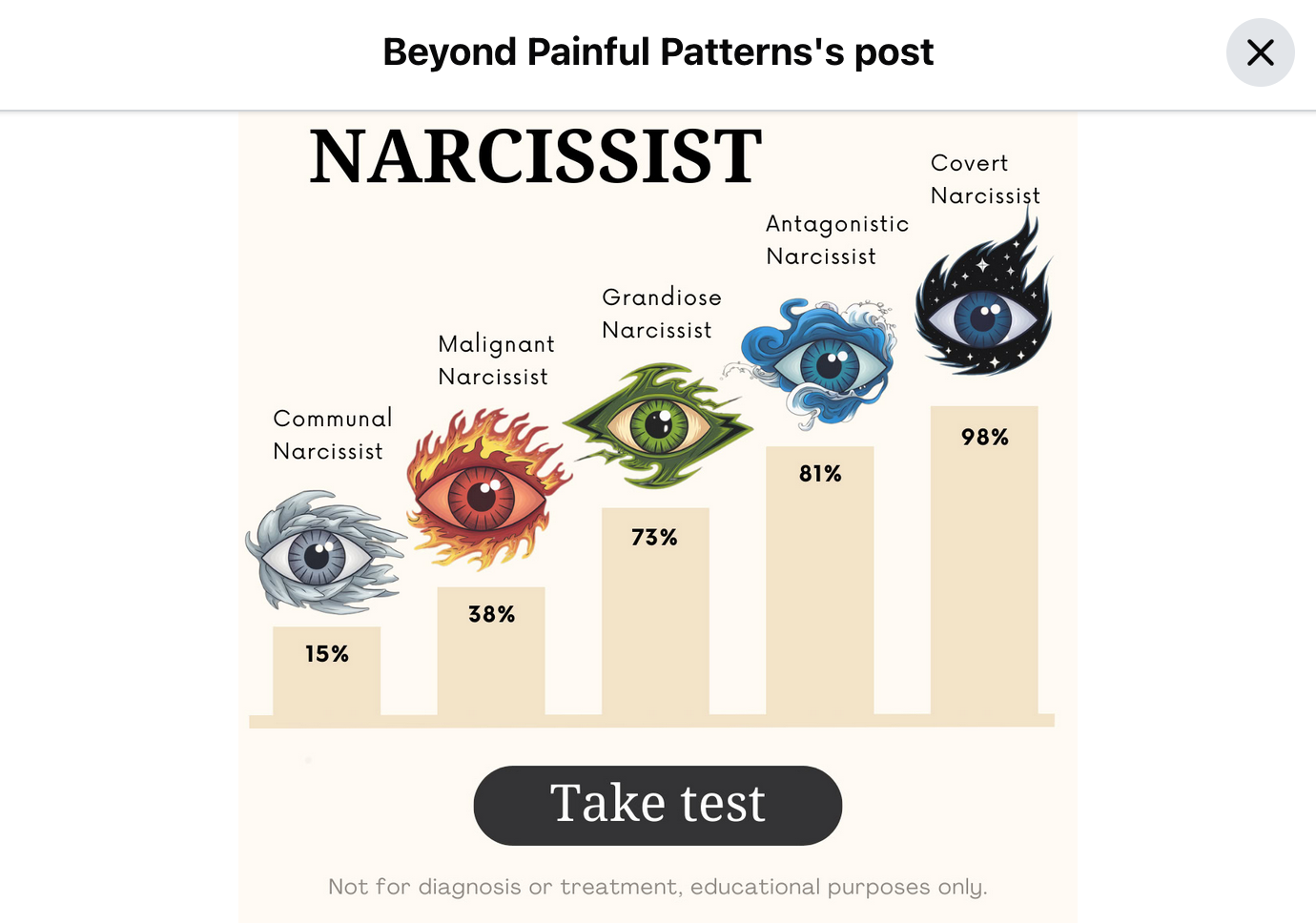Narcissism – Overused and the Potentially Harmful Accusations?

Evidence based medicine is the foundation of the environment I work in every day. I’m not a care provider but my role is to support experts in delivering messages by telling the stories of their patients, research, medical practices and all the other happenings within our local hospital system. Part of our teams role is to also identify trends, positive or negative, and find our organizations place within those public conversations.
There is a wild amount of pseudoscience available online and shared in social media, often to the detriment of the people reading and applying this “knowledge” to their lives. (Who wants some ivermectin to cure their COVID?!)
My social media feeds, because of my search/cookies history over the last year, is LOADED with relationship “experts”, “diagnosis” apps and people that appear on the surface to be credentialed as therapists. There are many legitimate experts that have a presence online. This type of content is very easy to take from experts, recycle and transform in to shock value click-bait. The purpose is to lour people in to the publishers social media circle, ultimately spending money on some product or “test results”.
Many of these apps appear helpful on the surface, but a closer look under the hood, they are marketing/information collecting tools that take advantage of the worries and vulnerabilities of the reader. Their goal is for the user to input as much extra information about themselves for whatever database the information is being collected/sold for. Are there quality and helpful app/websites? Absolutely! But this space is easy for non-medical and non-therapist professionals to take advantage of.
Why is this a problem? It’s a problem in the same way that when people start to “google” their health symptoms and self-diagnose without the input of medical professionals. “I have a sore throat” suddenly leads me to “I have cancer”.
draft unfinished